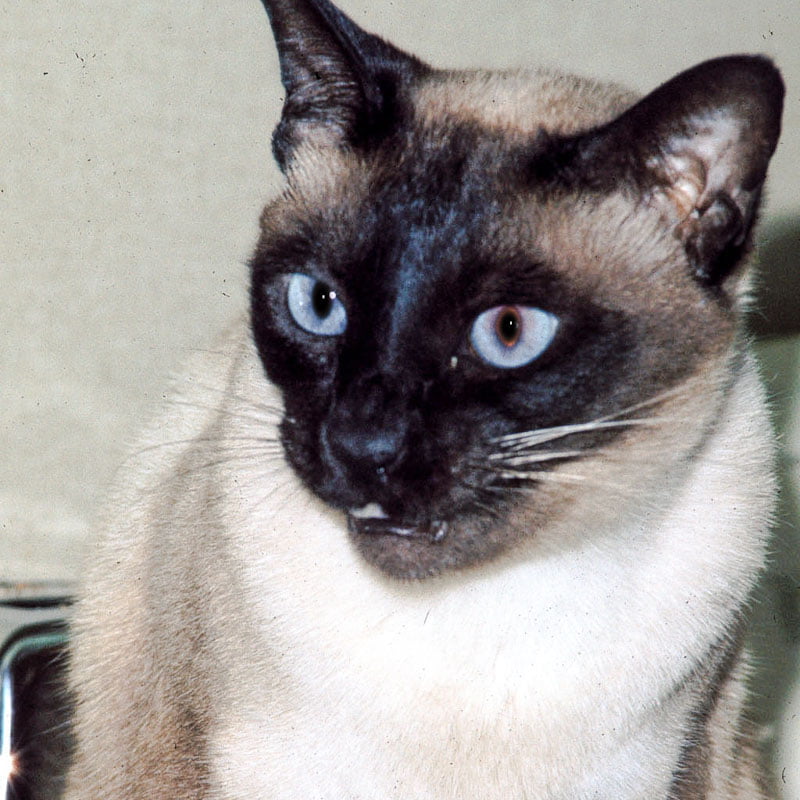Does your cat meow too much? Meowing is a request. It is a vocalisation that the domestic cat has learned in order to ask their human caregiver for something, usually food. Or it might be to wake you up at some unholy hour for interactions and, yes, breakfast. It has to be said that meowing takes on a range of forms and domestic cats have a range of sounds.
People like their cat’s meow
If you asked 100 cat guardians the question in the title I’m sure that a mere 1 or 2% would agree. In other words, the vast majority of people do not think that their cat meows too much because domestic cats are by-and-large quite silent creatures unless you live with a Siamese, a cat well known for a racous demanding voice which is often used. But you’ll know about that before adopting so no cause for complaint.

Ignore meowing to stop it?
However, the average random bread cat does not meow too much. Perhaps if a cat is perceived as meowing too much is because she’s been ignored too much! But then again, it is argued by the experts that if you want to stop your cat requesting things from you by meowing you should ignore her. She will then go into overdrive and try harder by meowing more and pestering you more and then she will give up and silence will fall upon the household. However, is that a good thing? If a domestic cat is asking for something, is it not better, as their caregiver, to respond to it because there will be a good reason for that request. So I don’t subscribe to ignoring my cat’s request for something. I treat it as a nice interaction. I want him to talk to me. And I am more than happy to respond even if it is 4 a.m. in the morning. Perhaps I am out of step with the majority of cat owners. I don’t know but I doubt it.
More about when not what
Perhaps it’s more a question of when they do their meowing and, like I said, at 4 a.m. in the morning it is hardly welcome unless, of course, you are already up as I am.
Lifestyle conflict
When we live with a domestic cat we really have to accept that their lifestyle is different to ours. They fit in with our lifestyle because they have to but we should also fit in as best we can with theirs and this means adapting to a certain extent to some nighttime activity from our cat.
Late night howl
Other than the meow, sometimes elderly cats suffering from early-stage dementia can become confused at night and howl, which is a call for companionship. It’s a burden to respond to it but I think we should. It’s a bit like marriage. We take the good times and the bad times and deal with them equally. In sickness and in health, that’s the promise. In old age domestic cats can become troublesome relatively speaking but they are still adorable and we owe it to them to look after them to the end.
Catwerwaul
You will rarely hear caterwauling which is the cry of “cats under the influence of the sexual instinct”, according to one dictionary. It is essentially an aggressive, threatening sound made by sexual or territorial rivals. Because it is so rare a sound, in my view we can’t complain about it.
Silent meow
Some individual cats and cat breeds are predisposed to the silent meow. This may please somebody who thinks that cats meow too much. It’s very cute. They open their mouths and nothing comes out! Perhaps all cats can and do do it, but some are predisposed to it. I recall that the British Shorthair is one of those breeds.
Request directed at human
It is ironic that some people may, on occasion, be irritated by their cat’s meow. This is because the meow only exists because of the human-cat relationship. Without the human there’d be almost no meows. I think that you will find that feral cats rarely meow amongst themselves. Domestic cats start to meow around six months of age and it is directed at the human. It is a learned vocalisation to request something. And some domestic cats have refined the sound to make it more effective in that it tweaks the human brain into believing that a baby is making the sound. It taps into the maternal or paternal instinct. The domestic cat is quite savvy and over 10,000 years of domestication has adapted well to human life. We need to reciprocate.
P.S. When cats are ill they normally become more silent and hide. They will vocalise pain when picked up for instance.

